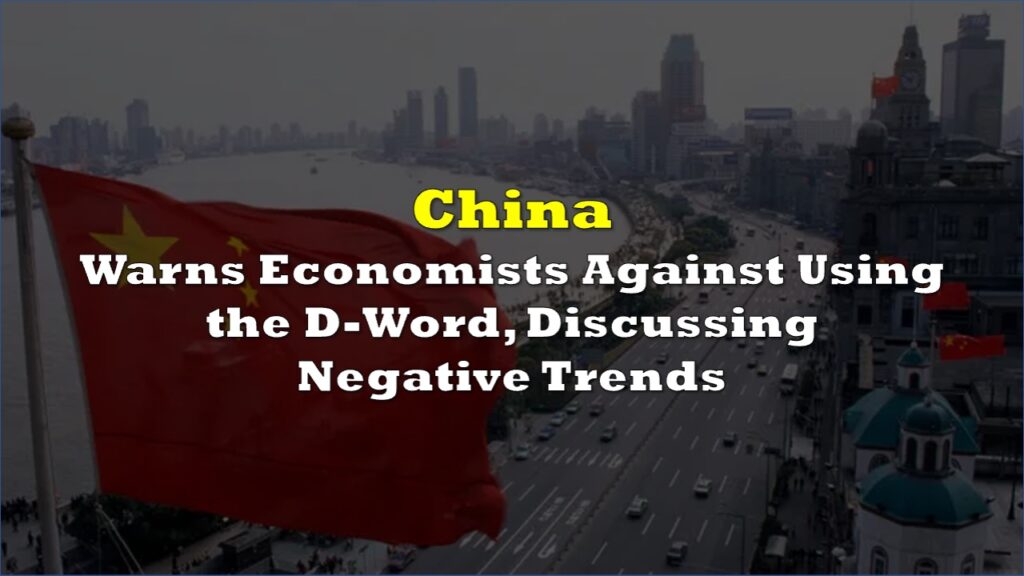China’s largest state-run banks have taken a new step to stimulate consumer spending by lowering interest rates on deposits. This marks the second rate reduction since last year and highlights concerns that the world’s second-largest economy has not fully rebounded following the removal of its restrictive “zero-Covid” measures.
All six commercial banks announced a cut in the rate for demand deposits, equivalent to a checking account, from 0.25 percent to 0.2 percent. Furthermore, they reduced the interest rates on fixed-term deposits.
The Industrial and Commercial Bank of China, the country’s largest lender by assets, lowered the five-year deposit rate from 2.65 percent to 2.5 percent and the three-year rate from 2.6 percent to 2.45 percent, according to the bank’s website.
Reducing deposit rates is one way policymakers can stimulate spending. The hope is that lower rates will incentivize consumers to spend or invest their money instead of leaving it idly in the bank.
This move reflects the sluggishness of consumer spending, a key driver of economic growth. After China lifted its Covid restrictions and reopened the economy last year, there were expectations that pent-up demand would lead to increased consumer spending. However, this has not materialized in many sectors of the economy.
Larry Hu, Chief China Economist at Macquarie Group, believes that the adjustment in deposit rates “paves the way for more easing measures.” He suggests that the People’s Bank of China, the central bank, may lower the benchmark lending rate or take other actions to stimulate the economy in the coming months. Hu explains that reducing banks’ payouts on deposits can offset some of the financial pressure when the central bank lowers the lending rate.
Although China has predicted a recovery from one of its slowest years of growth in decades, with an estimated 5 percent growth in gross domestic product for 2023, economic weakness persists.
In the first quarter of this year, China’s economy grew by 4.5 percent, supported by increased spending on dining out and luxury goods. However, the outlook appears less promising, and the second-quarter gross domestic product figures are expected to be announced next month.
The youth unemployment rate has reached a record high, and the real estate market, a crucial sector for investment and job creation, continues to slump with no signs of recovery on the horizon.
Betty Rui Wang, Senior China Economist at ANZ, notes that confidence in the economy is weak among Chinese households and private-sector businesses. While post-Covid demand initially propelled the economy, there have been indications of a downturn in May.
“It’s losing momentum,” Wang said.
Economists and analysts anticipate a range of new stimulus measures to be announced after next month’s meeting of the Politburo, the top decision-making body of the Chinese Communist Party.
Earlier this month, China was reportedly working on a fresh package of measures to assist the property market after existing policies failed to sustain a recovery in the ailing sector.
Under the guidance of the State Council, regulators are considering lowering the down payment in some non-core neighborhoods of major cities, lowering agent commissions on transactions, and further relaxing restrictions for residential purchases, according to people who are familiar with the matter.
Other efforts are already underway, such as the Ministry of Commerce’s campaign to stimulate automobile sales. Car spending, particularly on electric vehicles, had been a bright spot in recent years due to government subsidies and tax breaks. However, as Beijing has scaled back some of these incentives, car sales have slowed.
The ministry has pledged to support policies that boost new car sales. For instance, it plans to expand electric-vehicle charging infrastructure in rural areas, making the technology more accessible in the countryside.
Information for this briefing was found via The New York Times. The author has no securities or affiliations related to this organization. Not a recommendation to buy or sell. Always do additional research and consult a professional before purchasing a security. The author holds no licenses.









